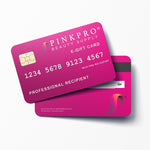Nobody’s perfect. “Oops” are an inevitable part of running any business, and the way you handle them is directly related to your customer service ethic.
Go beyond just solving the immediate issue with your customer and surprise them by going one step beyond the expected. It will lead to word-of-mouth marketing at its best, one of the most valuable, and least expensive, marketing tools you have. And remember, happy customers will tell their friends, unhappy ones will tell the world. Here are a few tips to keep in mind when dealing with the “oops”:
1) Listen to your customer. Resist the urge to start defending your product or service before hearing the customer out completely. In most cases, just listening and empathizing with your customer will immediately drop his frustration level and keep the situation at an easy-to-manage level for you.
2) Don’t argue, solve. We all know that the customer is not always right, but if you focus your energy on proving that to them, you’ll only alienate them and lose their business. Avoid spending time on rehashing what went wrong; instead, focus on a solution that not only fixes the situation, but shows your customer how much you do value them and want to keep their business.
Also, if possible, solve the problem on the spot. Nothing can take a situation from bad to worse quicker than a customer having time to think – a.k.a. stew – over something.
3) Be honest. If it’s your mistake, own it instead of trying to deny it or cover it up. Your customers will appreciate it, and they’ll be more likely to stay customers.
4) Keep it about the relationship, not the sale. If the solution comes down to you forfeiting an immediate sale or small gain to keep a good customer happy, do it. Weigh your options carefully when the outcome could damage the relationship you have with a good client. Remember, it costs more to acquire a new customer in time, effort, and marketing dollars than it does to keep an existing one.
5) Resolve it in a timely manner. If possible, resolve the issue on the spot. It’s better to take full responsibility - even if it’s not entirely your fault – and offer the customer a no-nonsense solution right away. Dragging it out gives your customer more time to think –and stew- over it, which can turn a small problem into a larger one.
The same applies for responding to a phone call or e-mail. A good policy is to return all calls within 24 hours.
6) Empower your staff. Train your employees how to handle problems in your absence. An educated and well-prepared staff is of definite long-term value to your business over one that is completely dependent on your being there to resolve any and all issues. Again, dragging out a problem can give your customer more frustration and more time to think on why he should take his business elsewhere.
7) Give them more than they expect. As far as good customer service, this is the crèmedel la crème. Providing an outcome that exceeds the customer’s expectations is what they will remember – and tell all their friends about.
What about you? Do you have other tricks-of-the-trade that have helped you solve customer problems in the past? What are other ways you go about protecting this all important business relationship?
